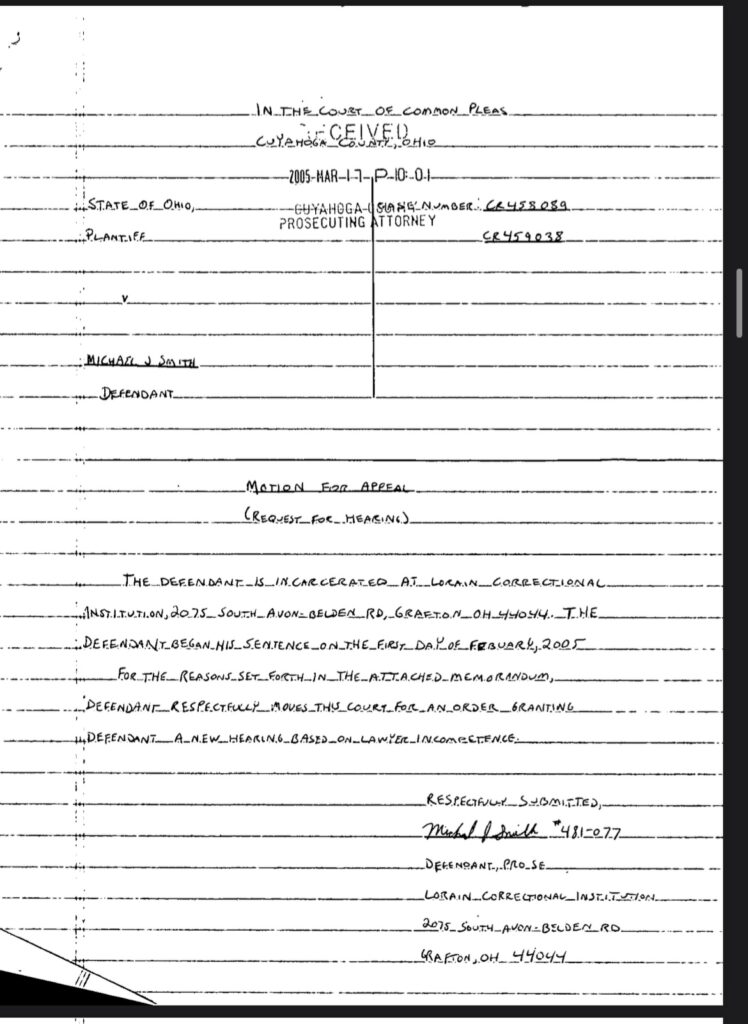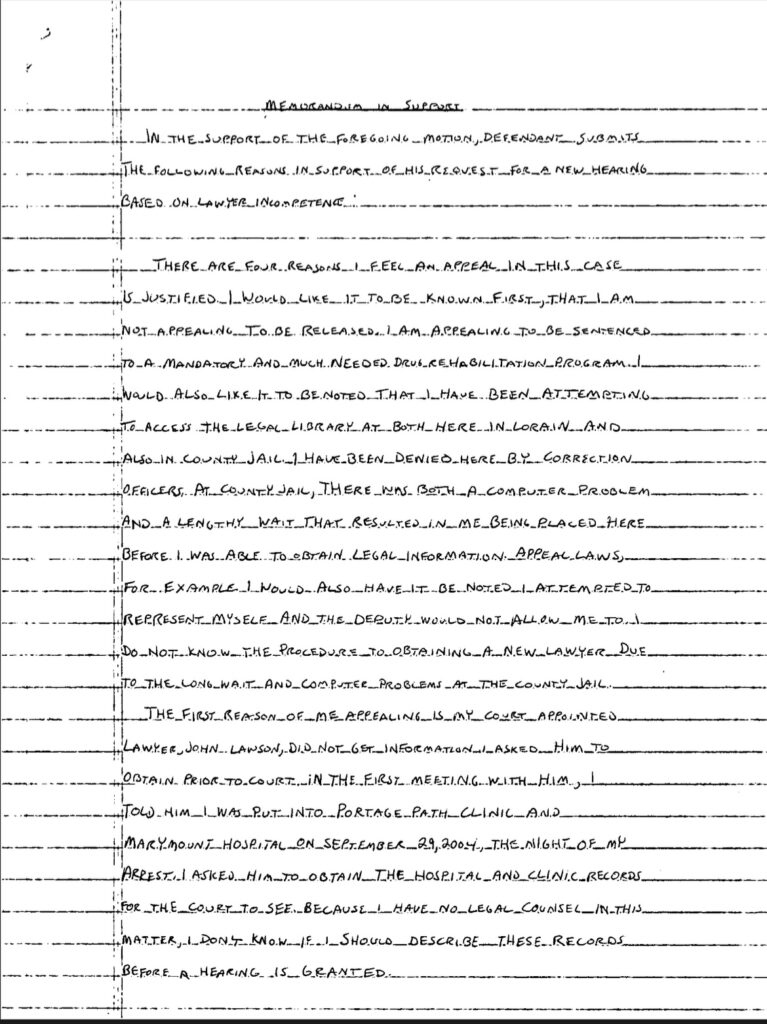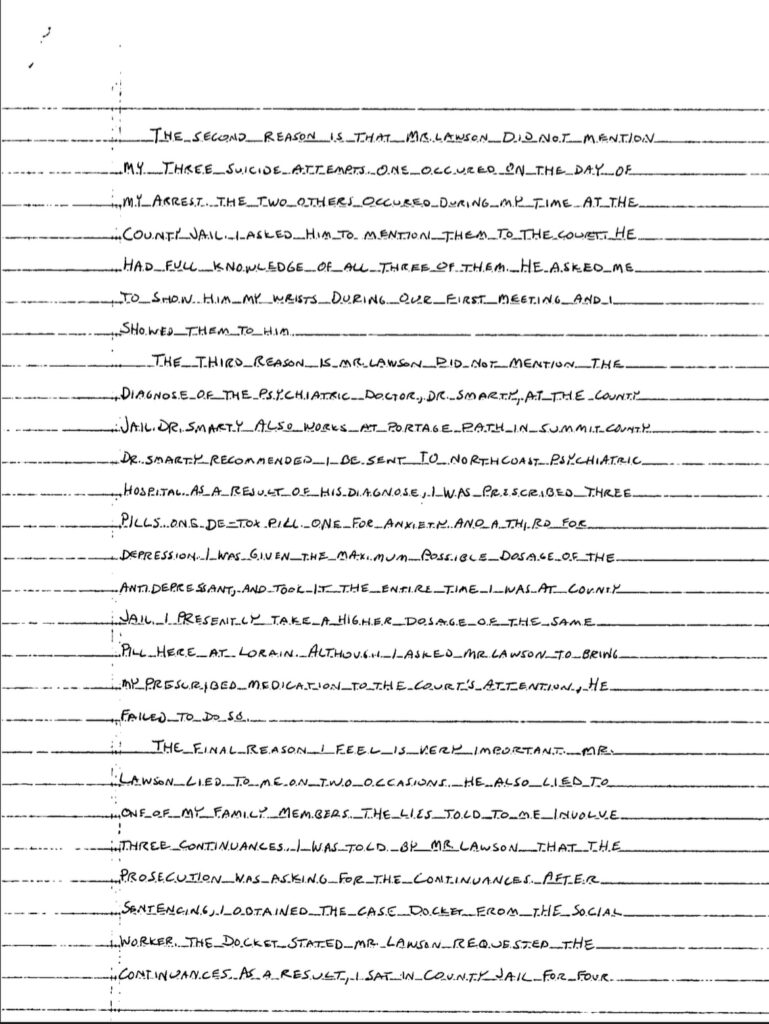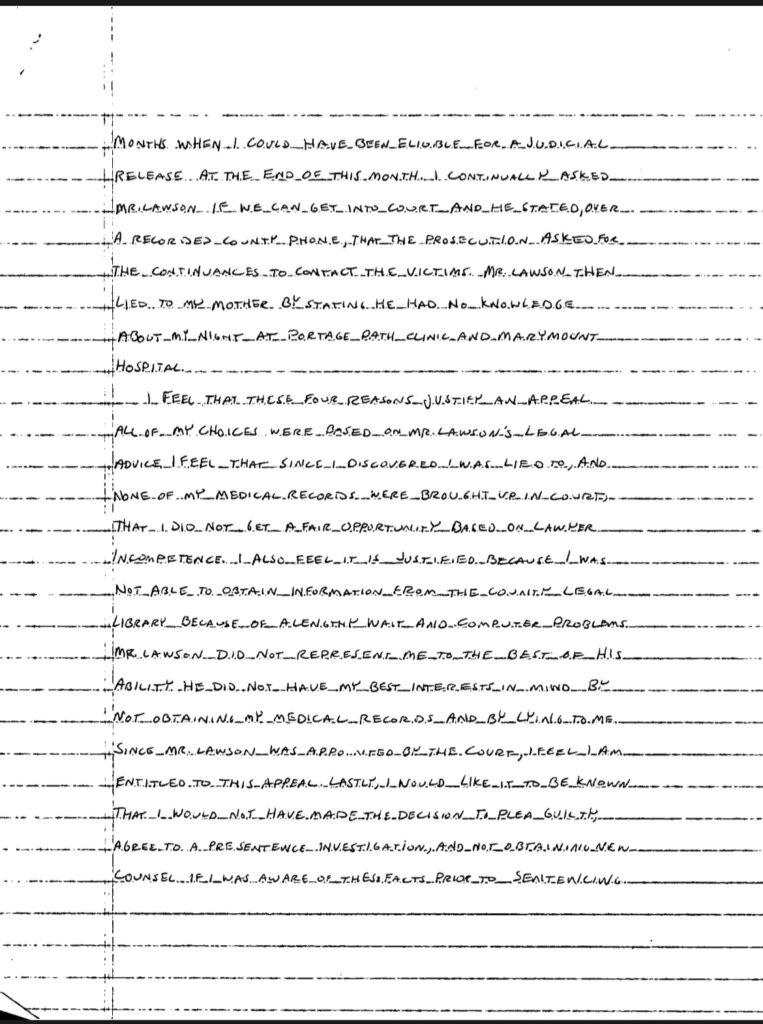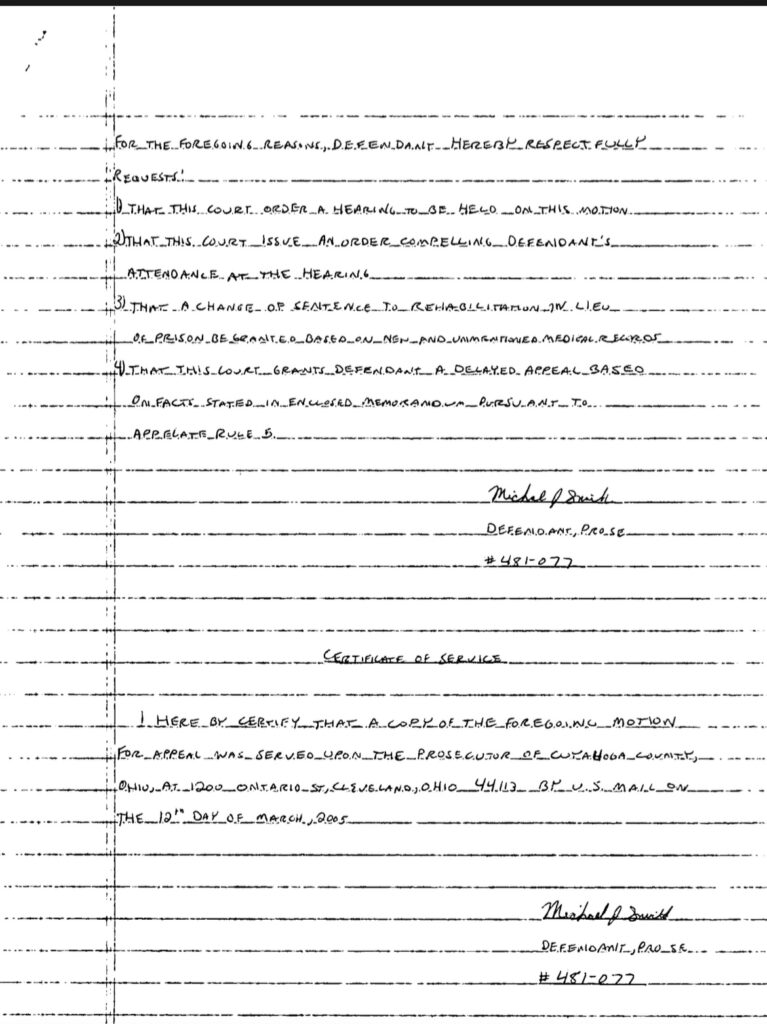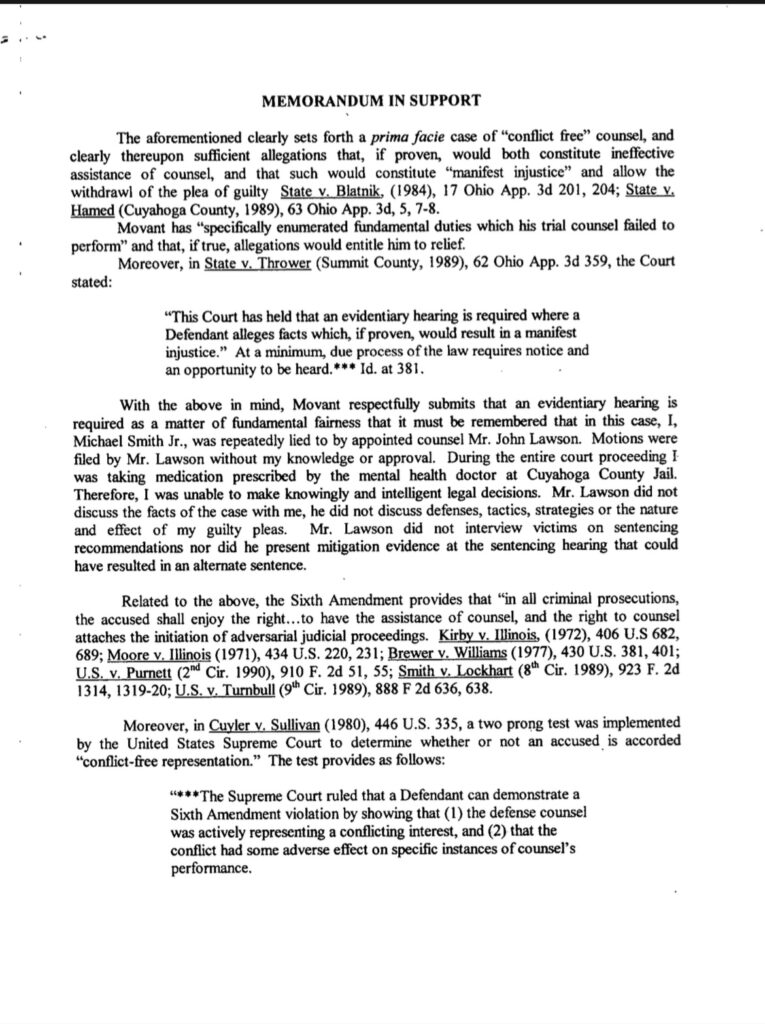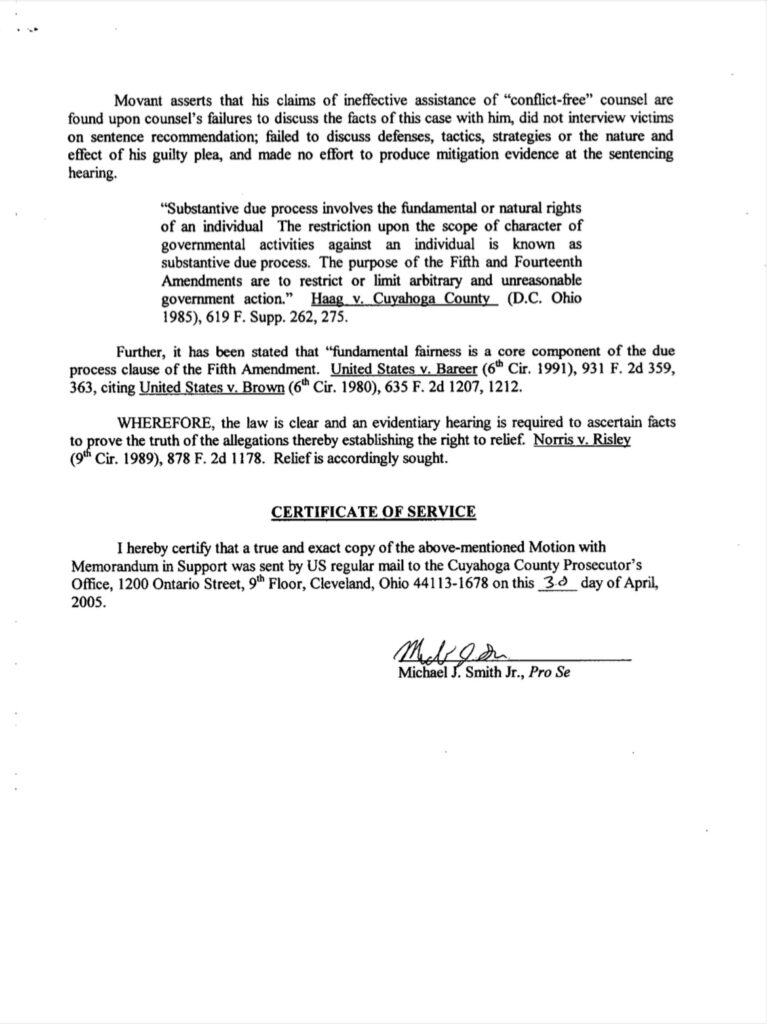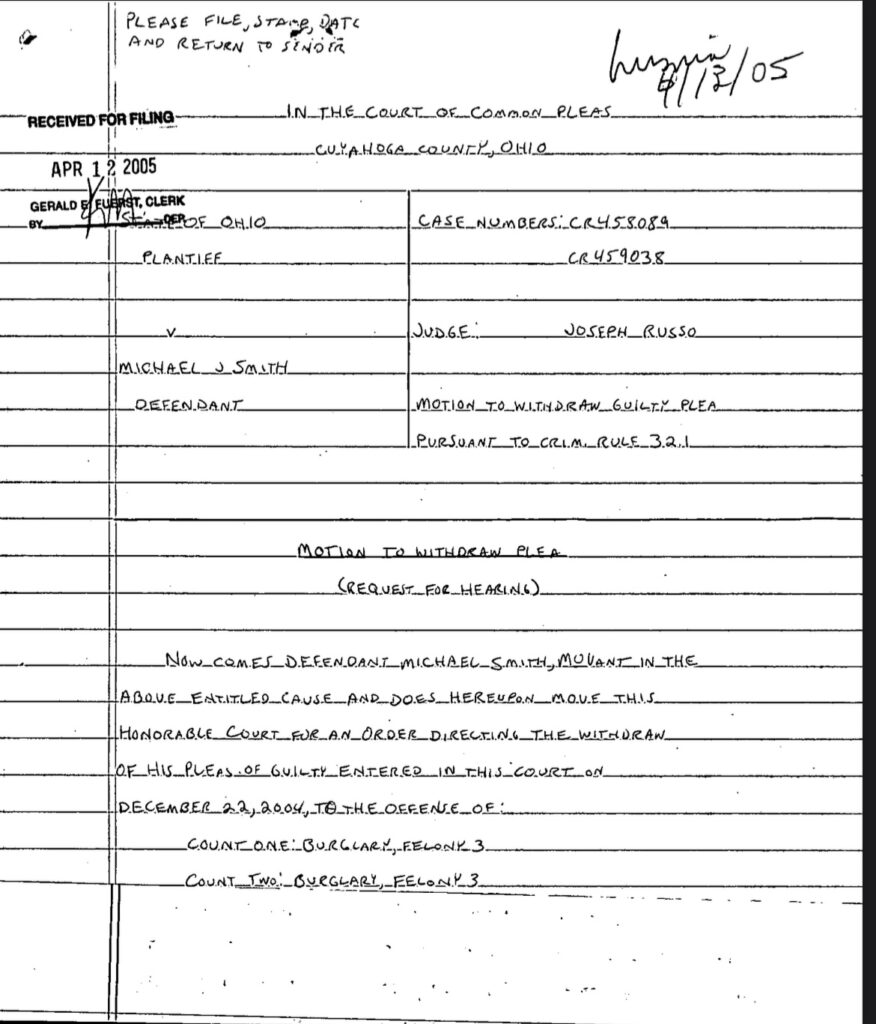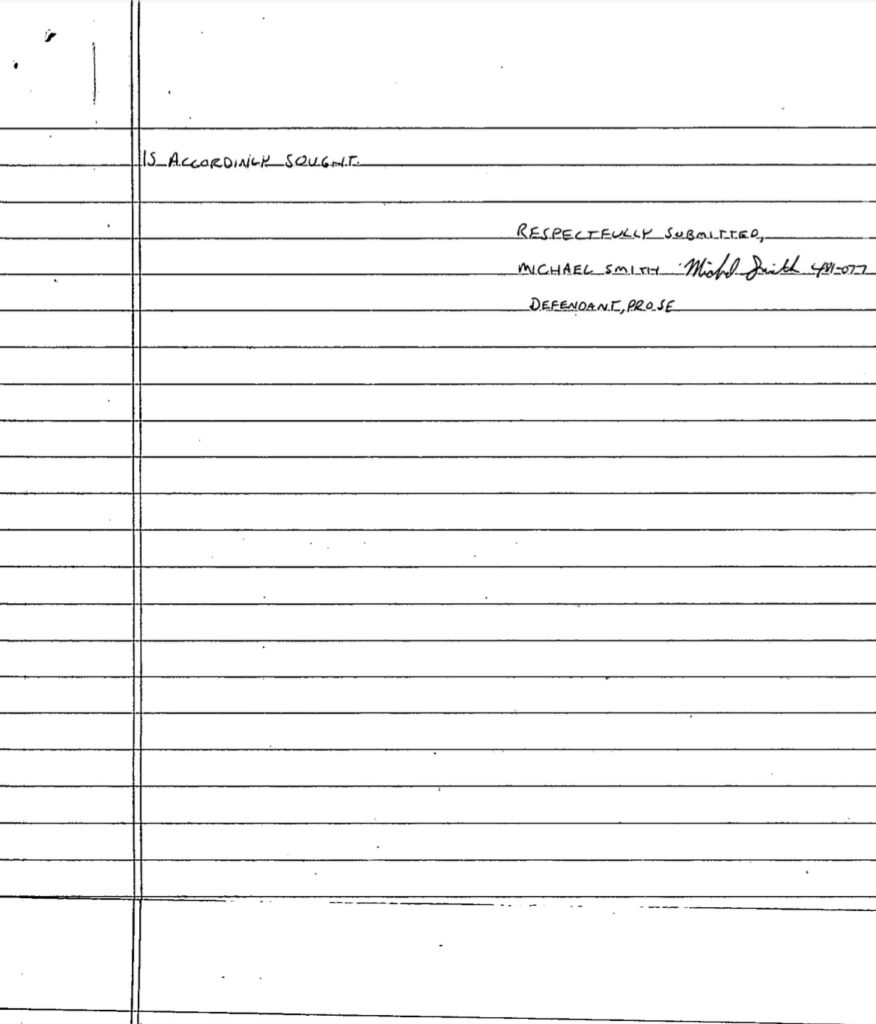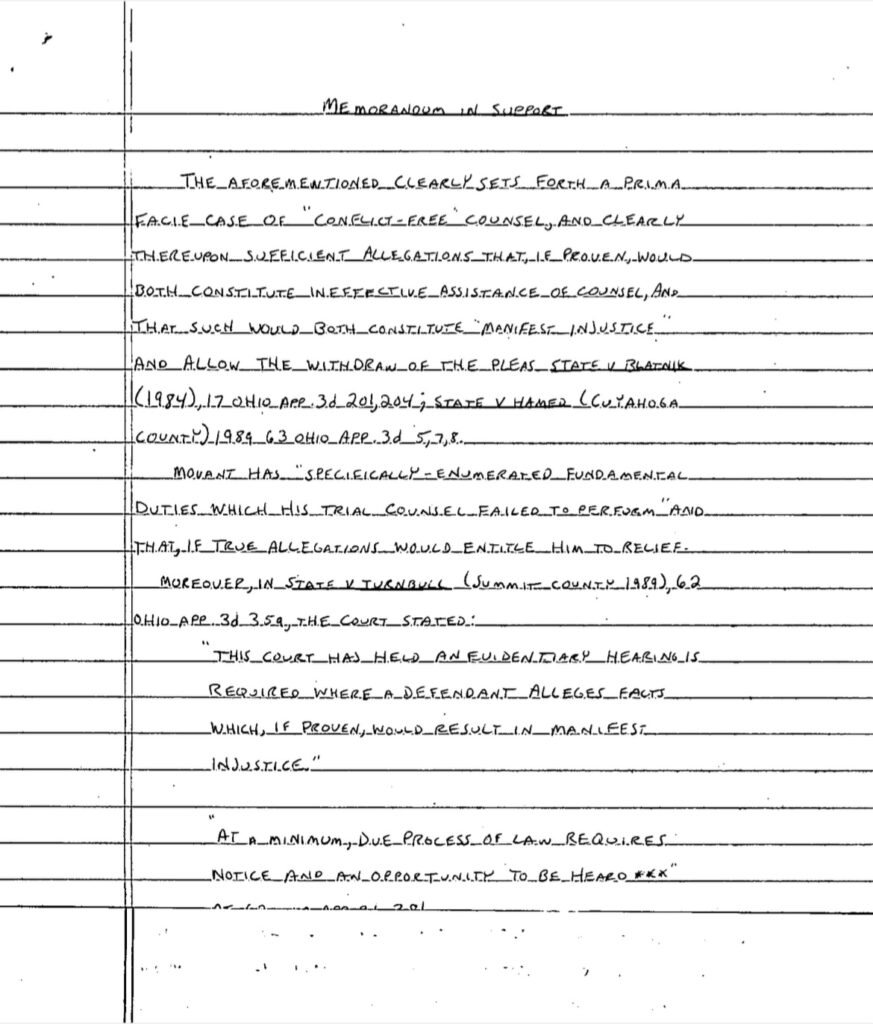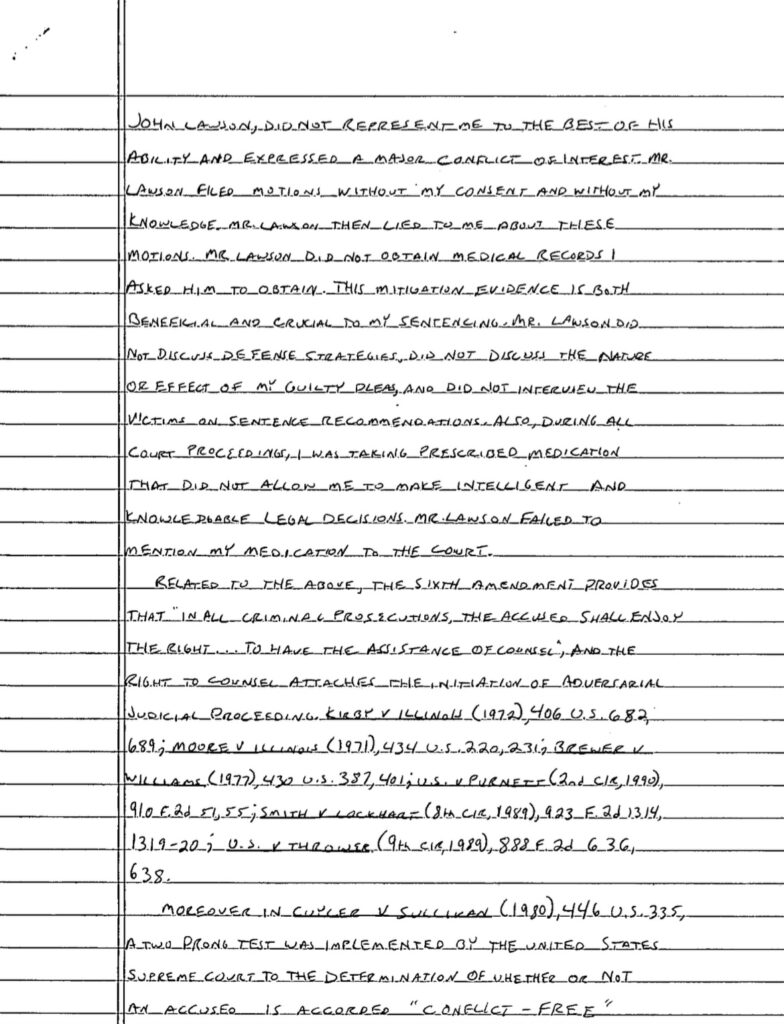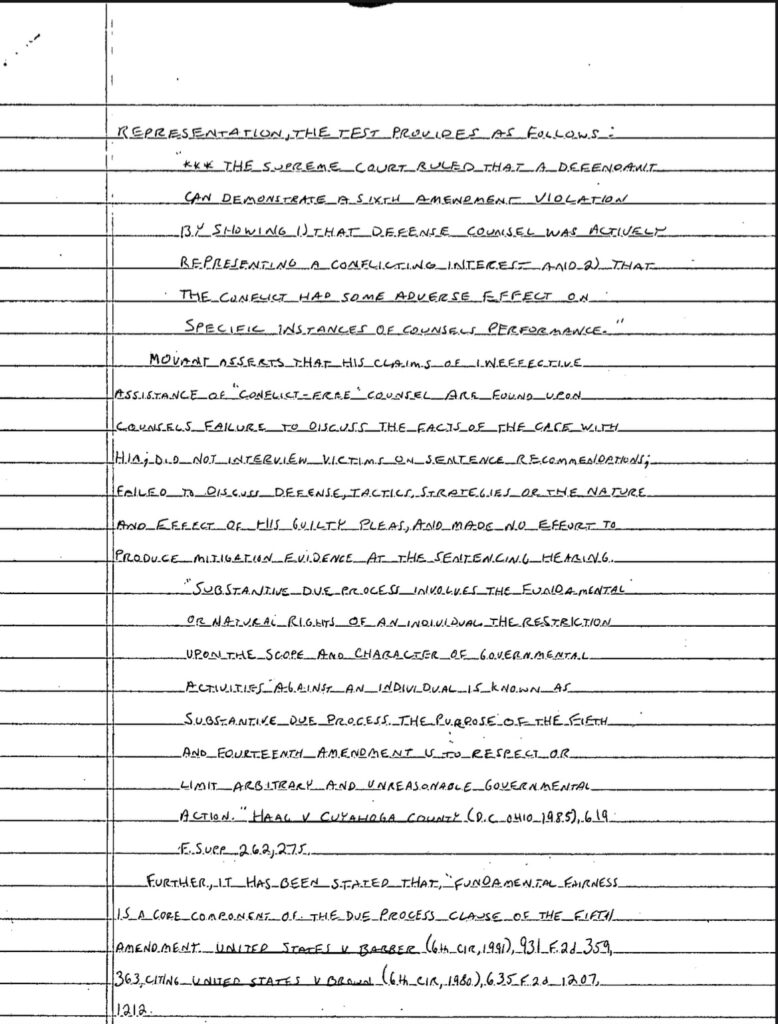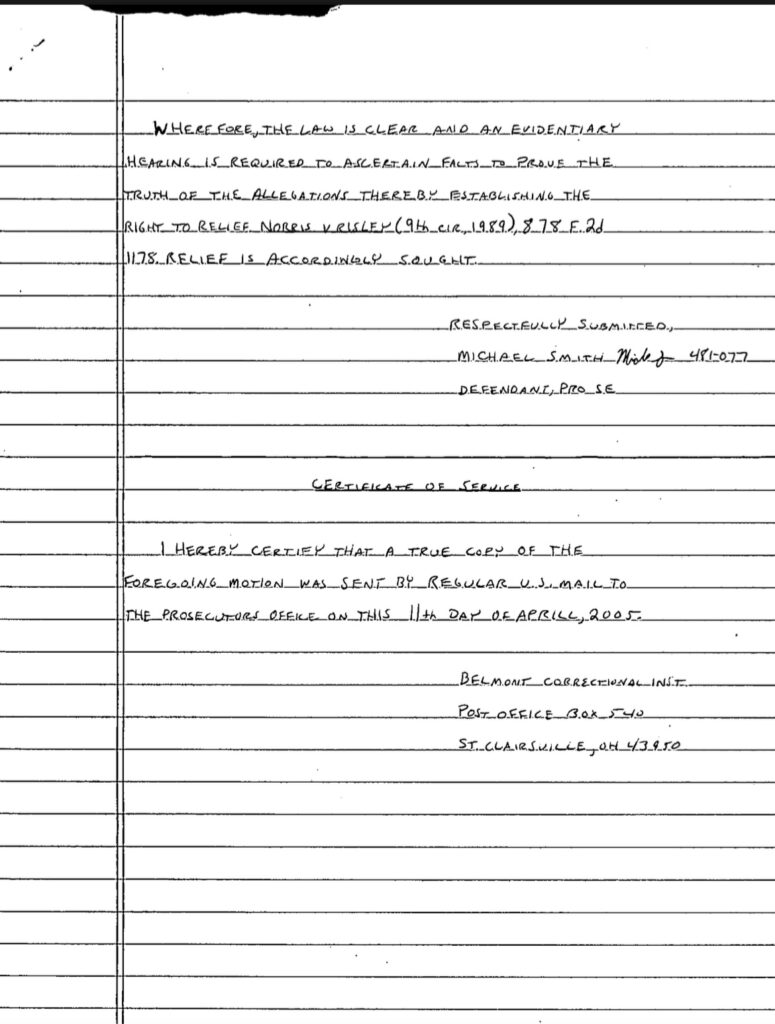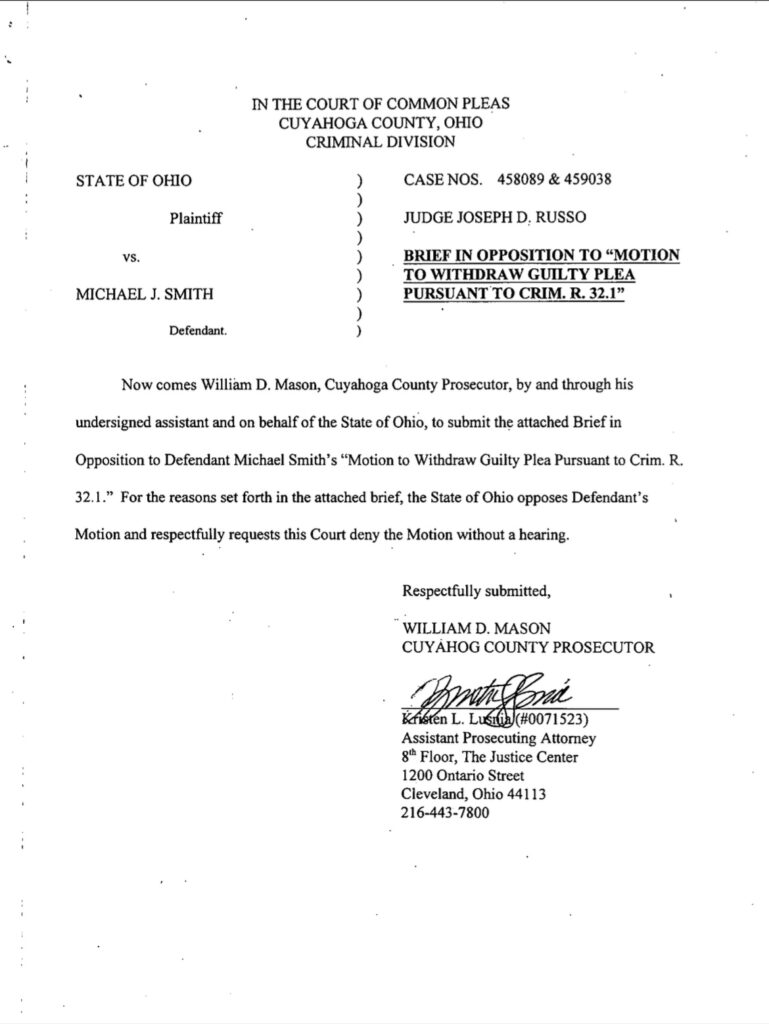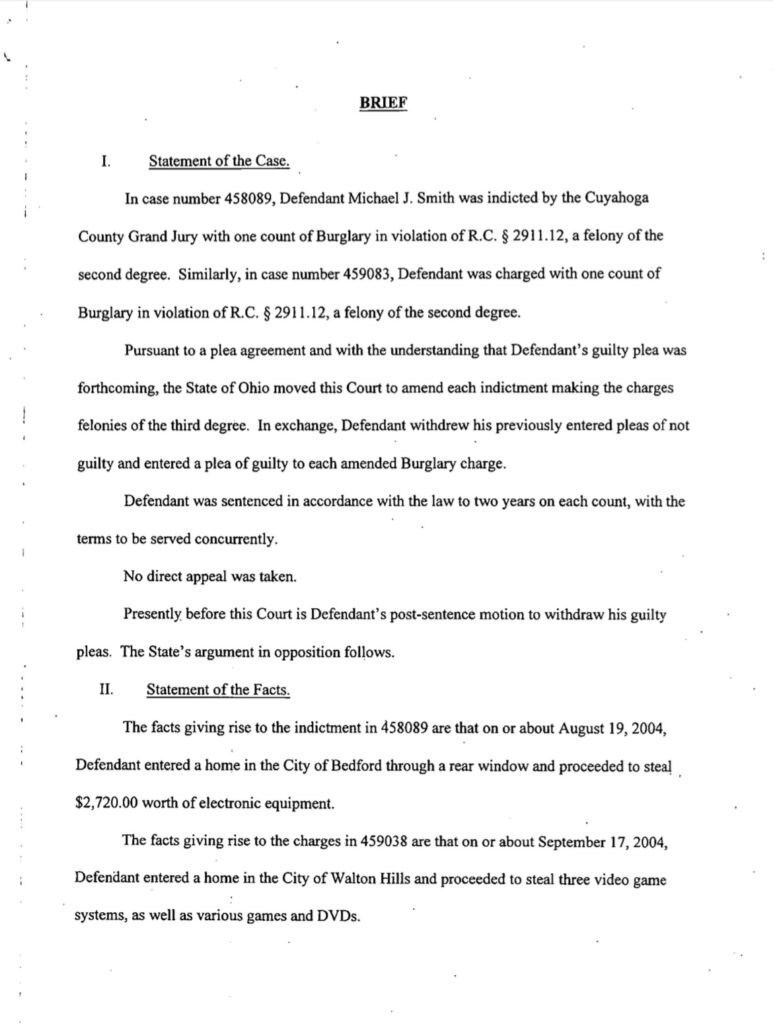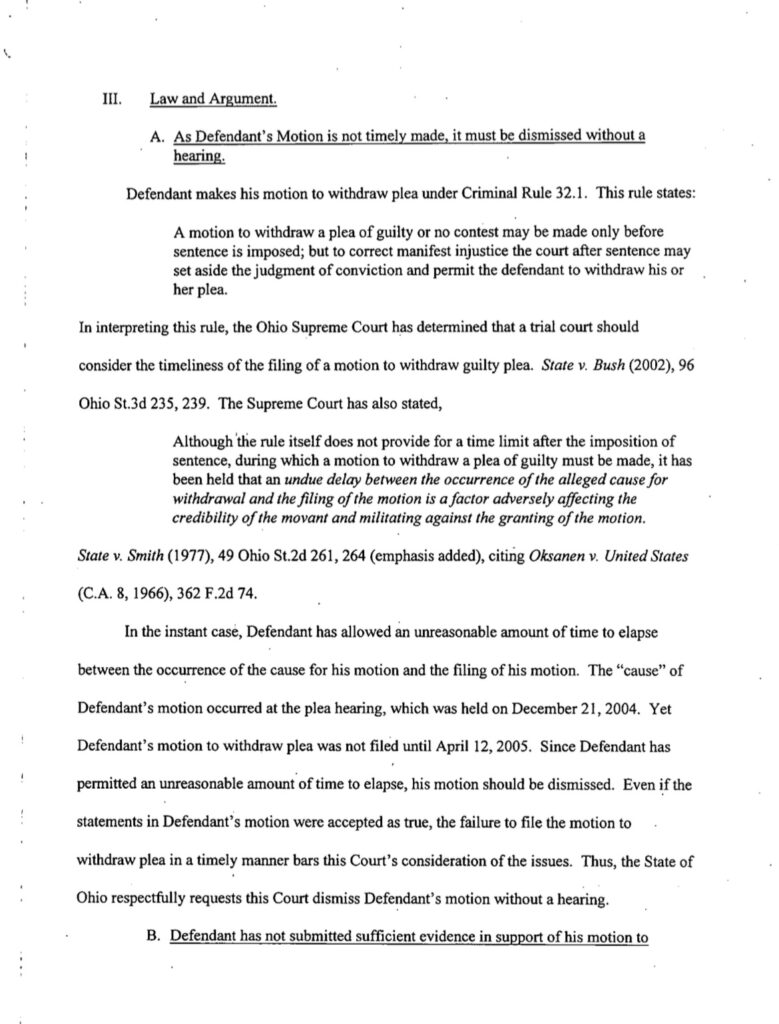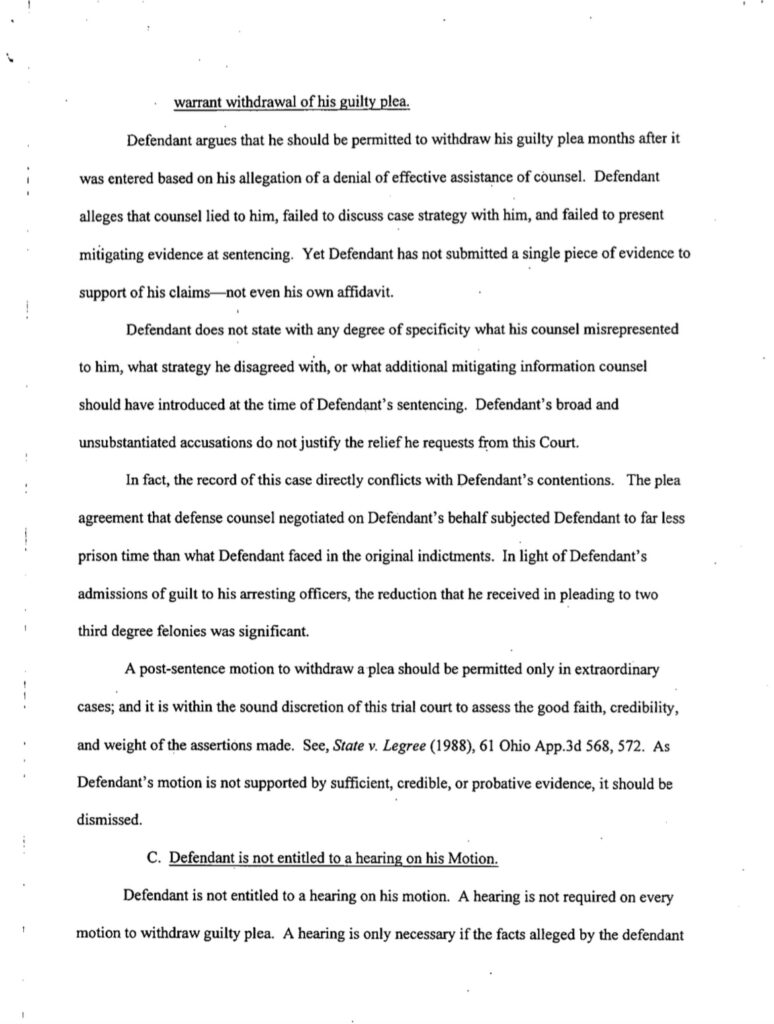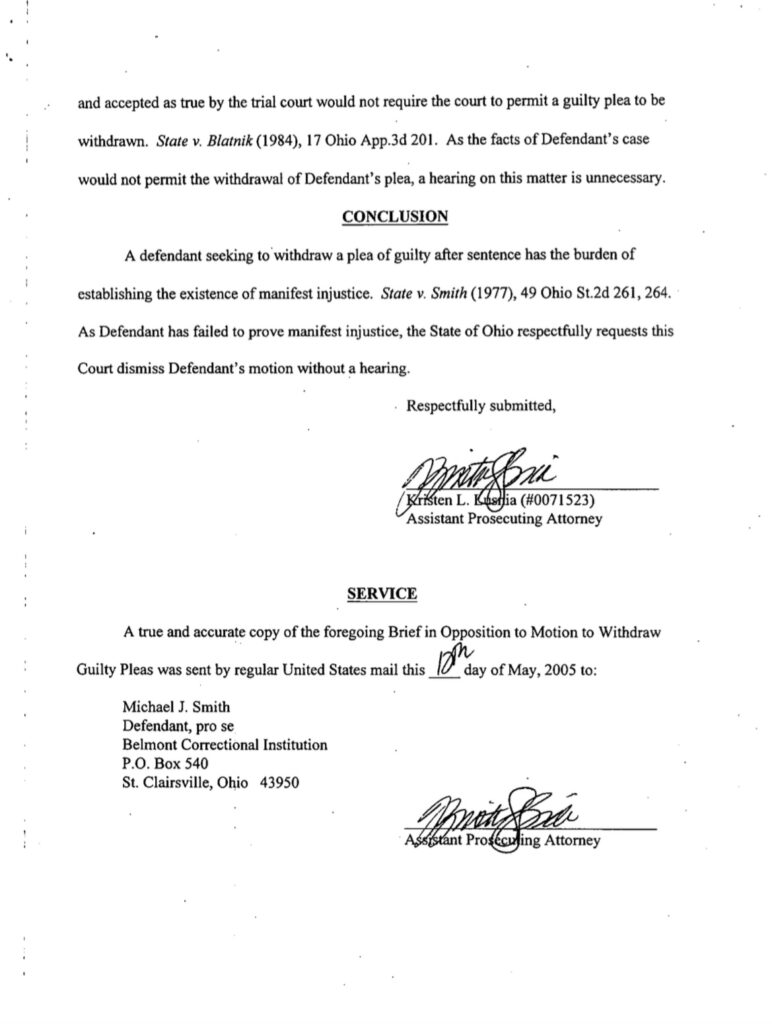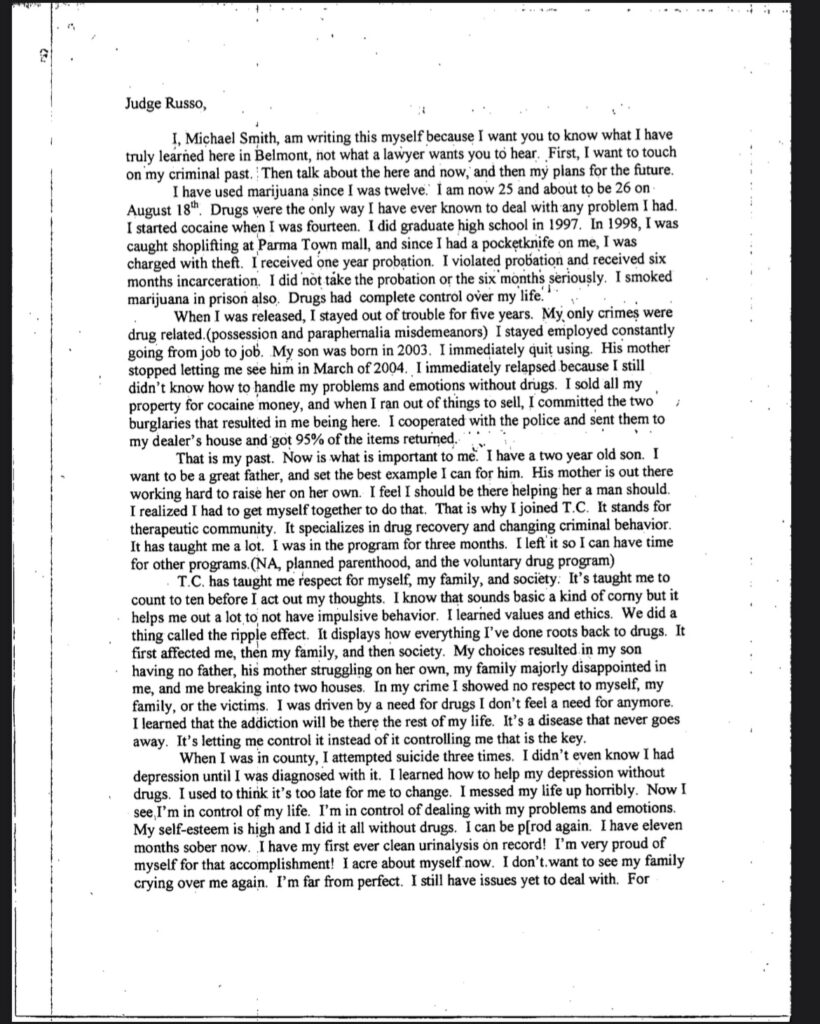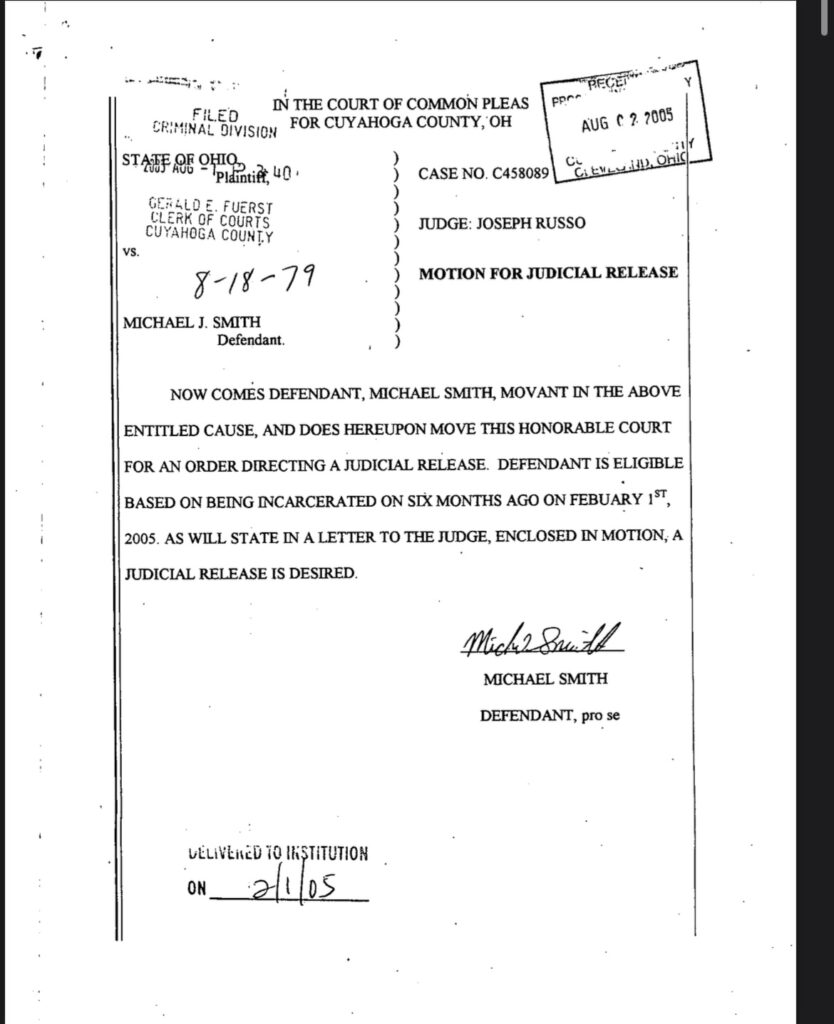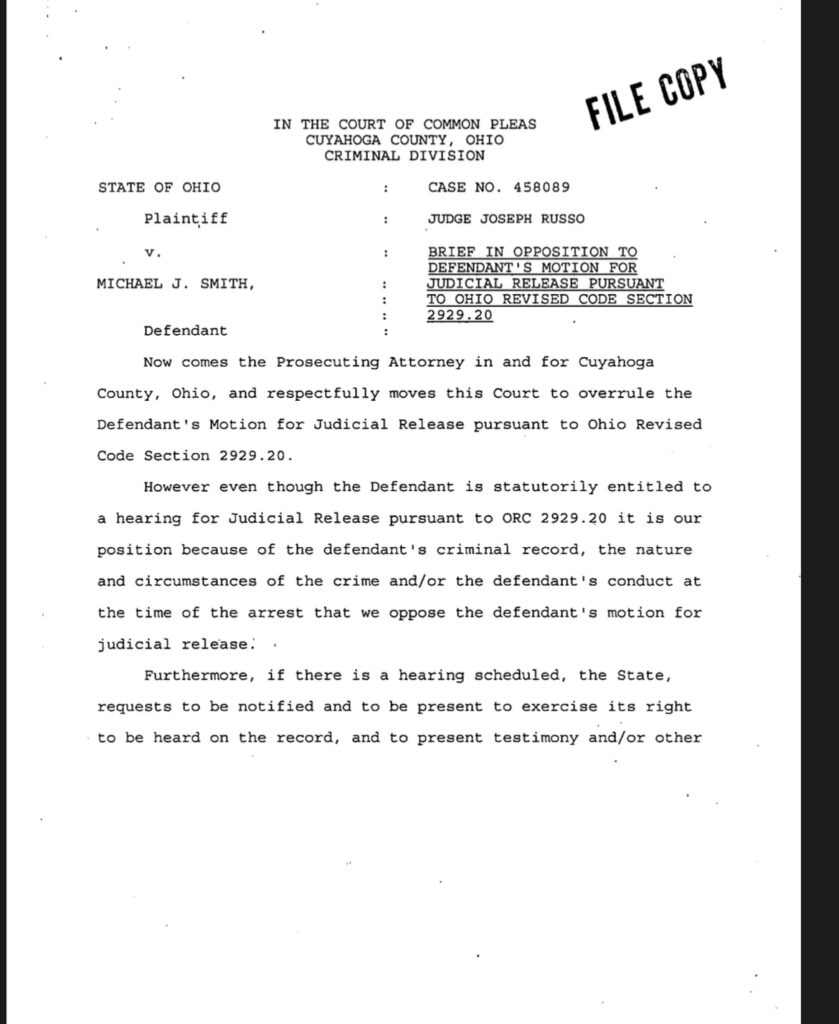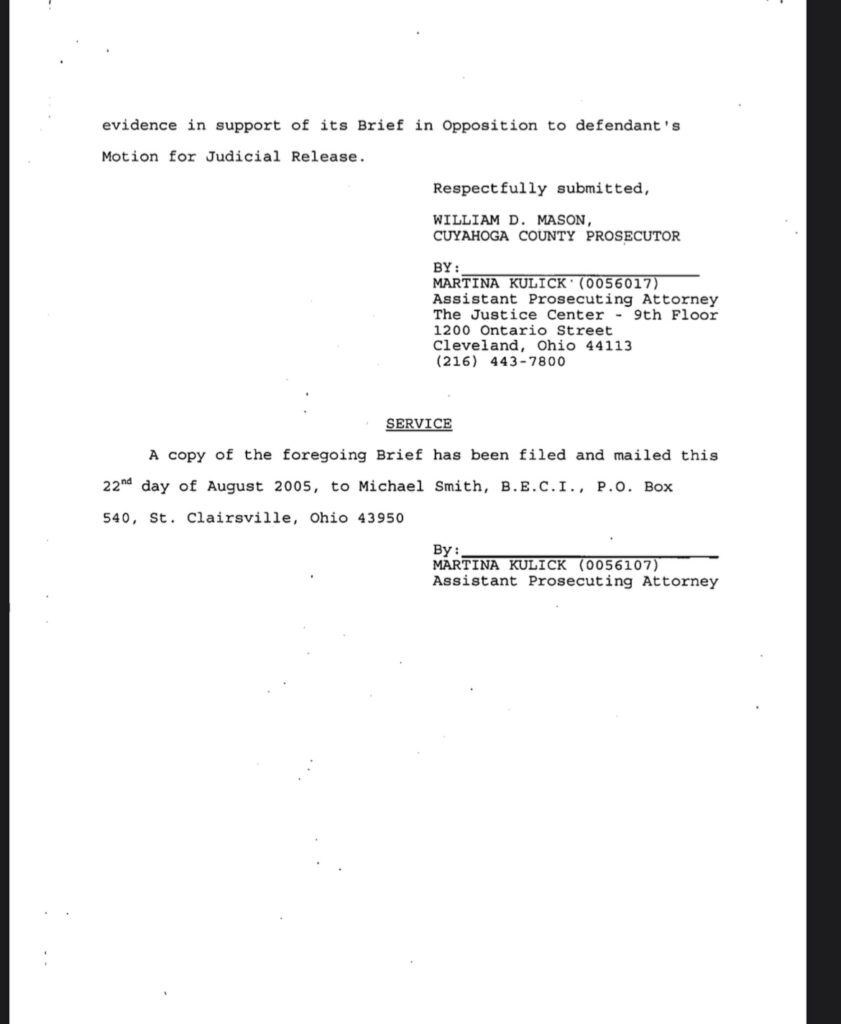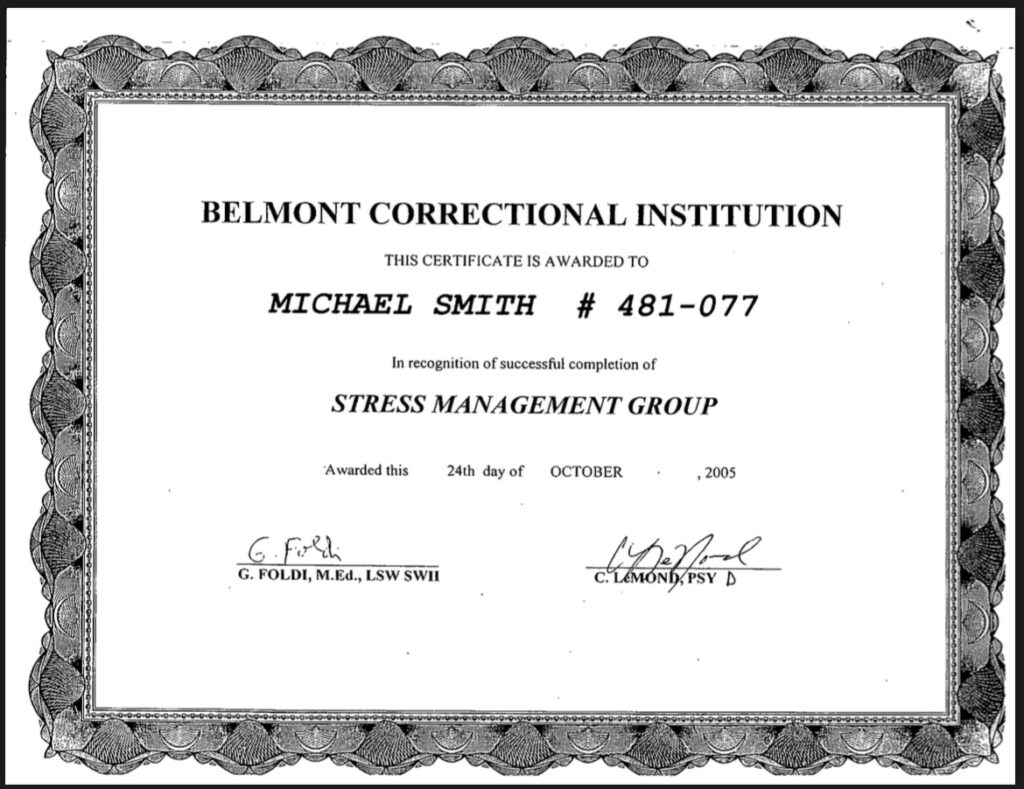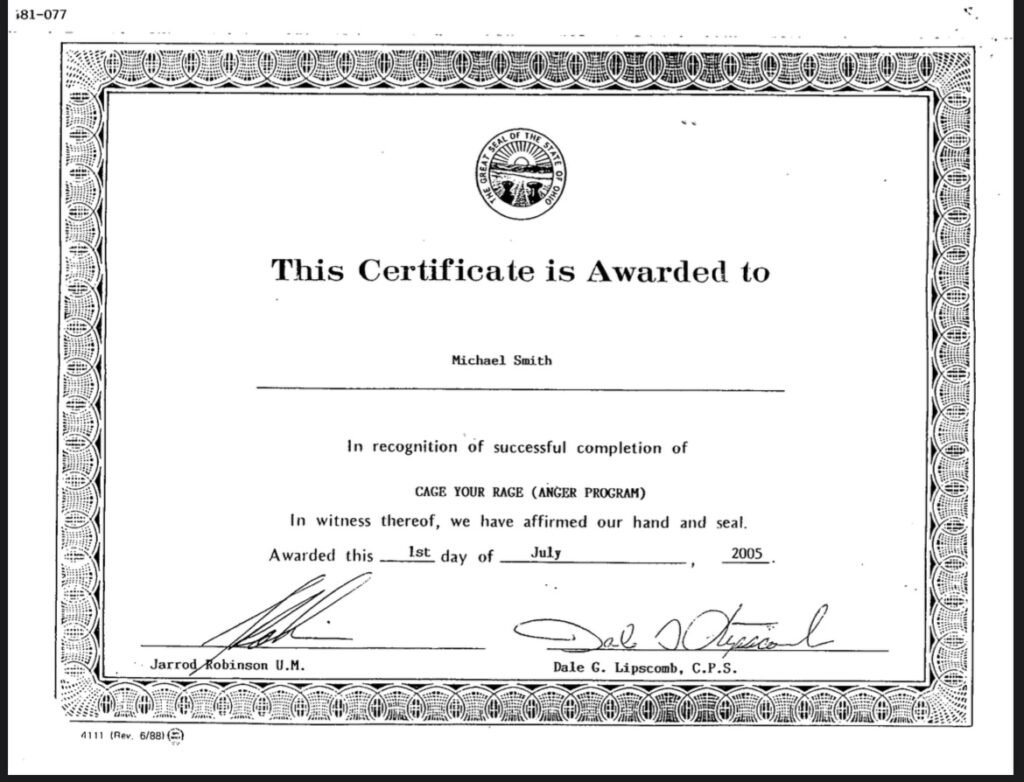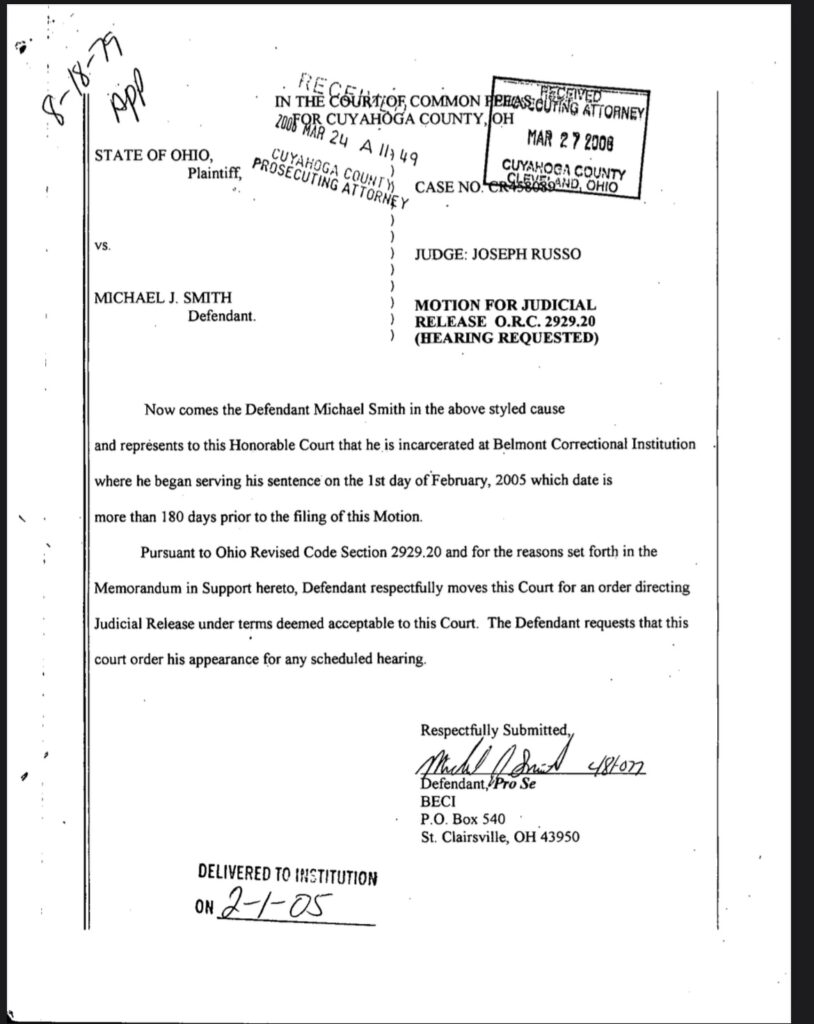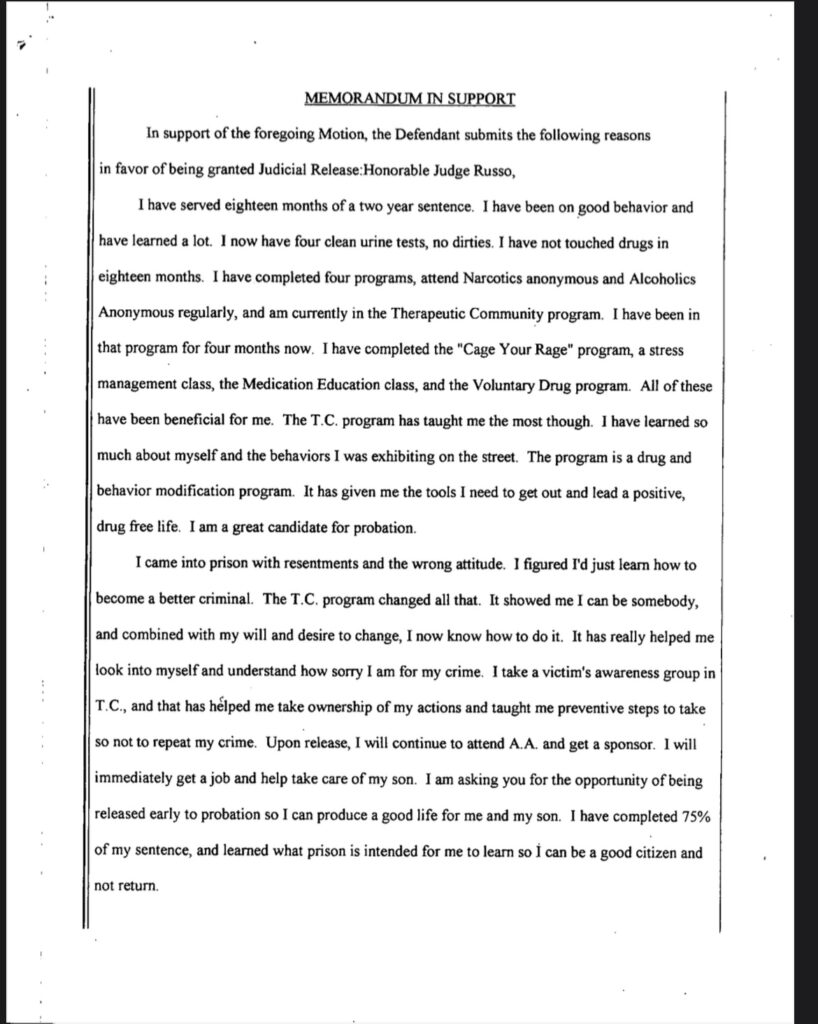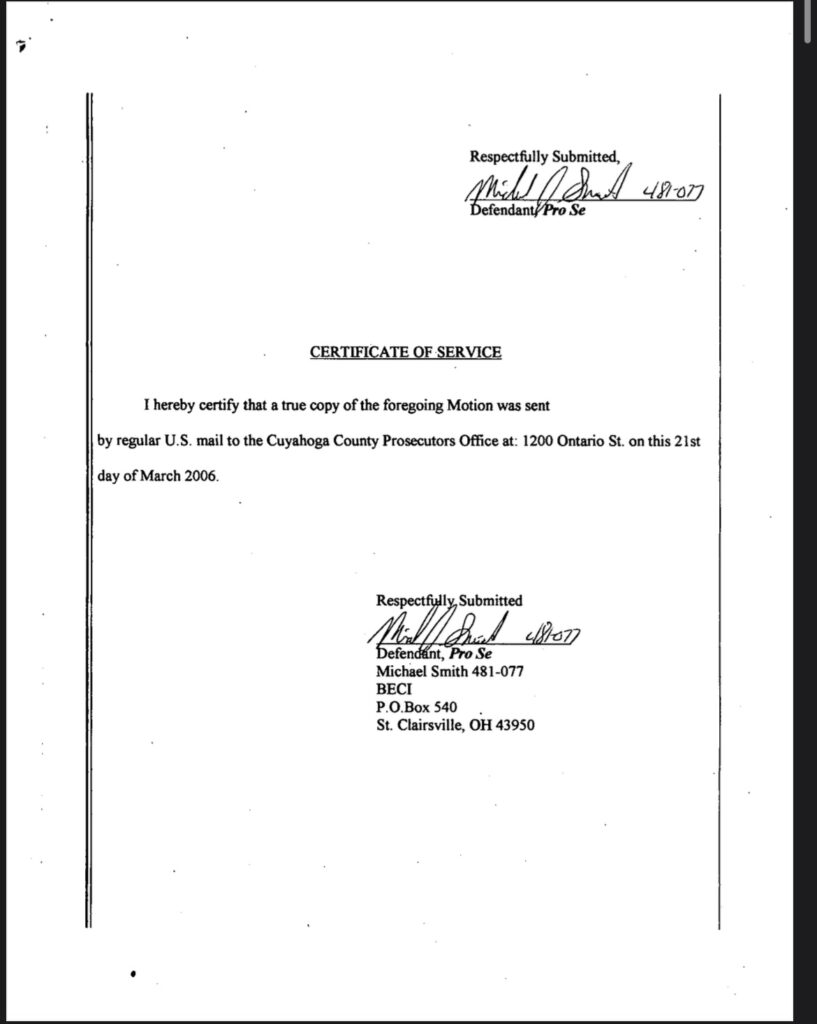After burglarizing two separate homes belonging to his former friends in August of 2004 and September of 2004, Michael Smith of Northfield, Ohio was indicted on November 2nd, 2004. He was declared indigent and assigned legal counsel. Smith entered a plea of not guilty to both counts of burglary, a second degree felony.
On December 21st, 2004, Smith agreed to a plea deal with the State of Ohio. The court would amend each indictment, making them felonies of the third degree. In exchange, Smith withdrew his previously entered pleas of not guilty, instead entering a plea of guilty to each amended burglary charge. He was sentenced to two years in prison for each count on January 25th, 2005. Both terms would be served concurrently.
Unfortunately for him, Smith allowed an unreasonable amount of time to pass before the filing of his motion to change his plea. His motion to withdraw his plea was not actually filed until April 12th, 2005. Since his plea hearing was held in December of the previous year, the court denied his request for failure to file the motion to withdraw his plea in a timely manner.
Smith did not like this outcome, and began to argue with the court, stating that he should still be allowed to withdraw his guilty plea months later because of “lawyer incompetence.” In one of his many Motions to Appeal that he’d filed in this case, he blamed his court appointed lawyer for a number of things, but most notably for not presenting the court with his medical records. One can’t help but wonder if he was hoping to plead insanity and receive a more lenient sentence.
This reminds us a lot of the Michael Smith we know today. Not much has changed.
The Cuyahoga County Prosecutor notes in his opposition to Smith’s motion, “[Smith] alleges that counsel lied to him, failed to discuss case strategy with him, and failed to present mitigating evidence at sentencing. Yet [Smith] has not submitted a single piece of evidence to support of his claims not even his own affidavit.”
The prosecutor goes on to say, “[Smith] does not state with any degree of specificity what his counsel misrepresented to him, what strategy he disagreed with, or what additional mitigating information counsel should have introduced at the time of [Smith]’s sentencing. [Smith]’s broad and unsubstantiated accusations do not justify the relief he requests from this Court.
In fact, the record of this case directly conflicts with [Smith]’s contentions. The plea
agreement that defense counsel negotiated on [Smith]’s behalf subjected [Smith] to far less prison time than what [Smith] faced in the original indictments. In light of [Smith]’s admissions of guilt to his arresting officers, the reduction that he received in pleading to two third degree felonies was significant.”
In August of 2005, six months after arriving at the prison, Smith filed his first motion for Judicial release. Enclosed in the motion was a letter to the Judge from Smith (shown below). In the letter, Smith talks about his last stay in prison for his shoplifting incident in 1999. He says, “I did not take probation or the 6 months [incarcerated] seriously. I smoked marijuana in prison also.”
Those two statements completely contradict his last letter to the judge when he motioned for Judicial release in 1999. In the 1999 letter, he says he is a good candidate for Judicial release because “probation worked” for him, then later says “I’m trying to tell you is that I straightened out my life. I accomplished what probation was meant for a person to accomplish. I look at my time on probation as a transformation period for me.”
Michael Smith’s statements in his letter from August of 2005 confirm that he lied to the Judge in his 1999 letter.
In his 2005 letter, there are more lies. He claims that he “stayed out of trouble for five years” after his 1999 burglary, and that his “only crimes were drug related. (possession and paraphernalia misdemeanors)”. This is another lie to the Judge. Not mentioning either of the burglaries he was currently in prison for, Smith was also caught using a stolen credit card in June of 2004, and was caught slashing someone else’s tires that same month. Neither of those are drug charges.
It’s no surprise that based on his criminal history, Michael Smith’s request for Judicial release was denied. He filed another motion in November, which was denied a week later. On March 28th, 2006, Smith again filed a motion for Judicial release, where he included another letter to the Judge. In this letter (shown below), Smith talks about how much he has learned in prison and discusses what programs he’s completed while serving his time. The Judge must have picked up on the lies from the previous letter, because Michael’s request was ultimately denied on April 14th, 2006.

